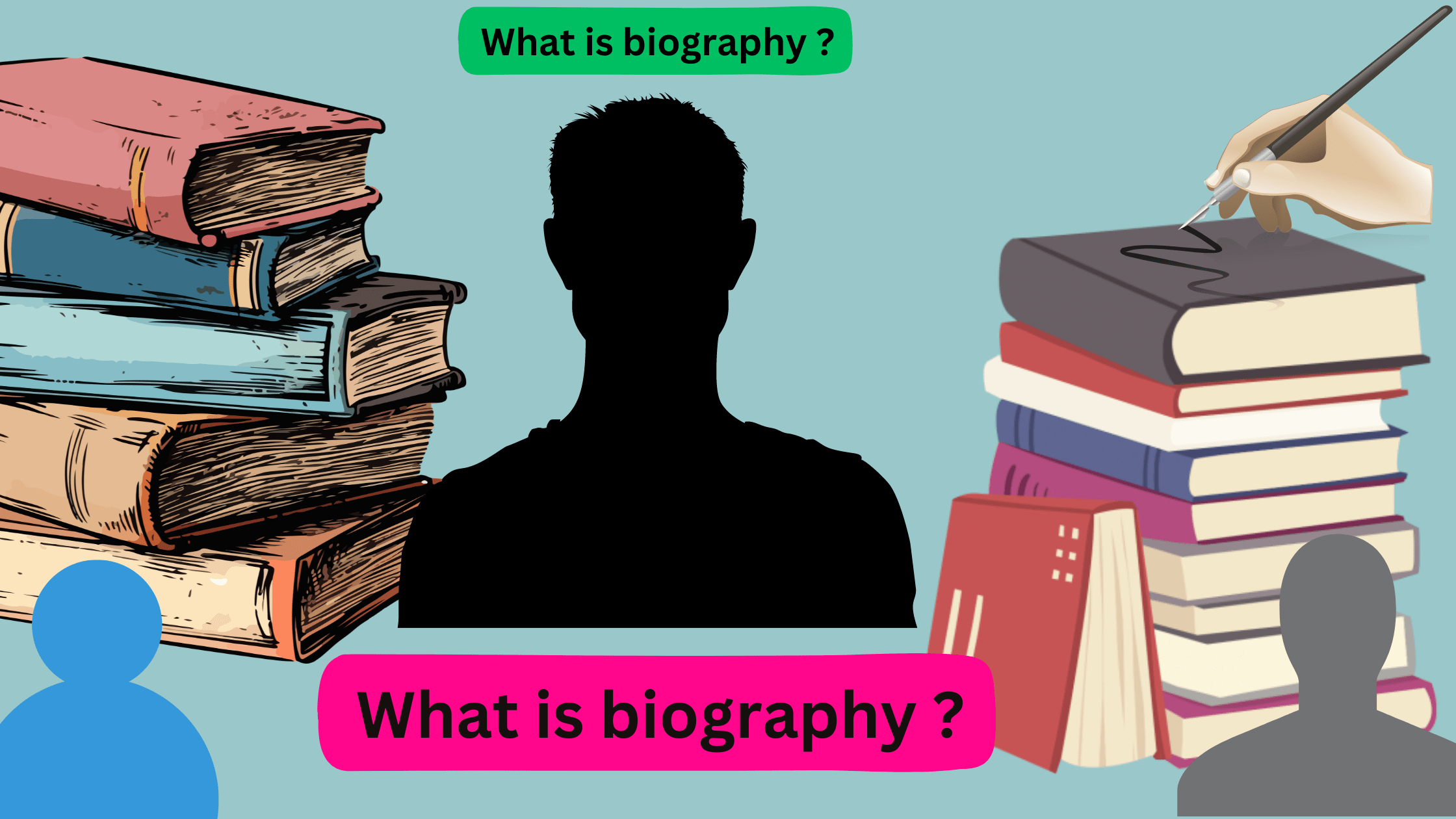Why Every Life is Worth a Biography
In a world brimming with stories, each life holds the potential for a captivating biography. From the seemingly ordinary to the extraordinary, every individual’s experiences, values, and aspirations weave together a unique narrative that deserves to be told. But why do biographies matter?
A biographical account has the power to inspire, enlighten, and connect us. By delving into the details of someone’s life, we gain valuable insights into the human experience. We uncover the triumphs and struggles, the lessons learned, and the legacy left behind. Whether it’s a historical figure, a trailblazer, or even an everyday person, their story becomes an integral part of our collective history.
Moreover, a well-crafted biography has the potential to ignite a spark within us, prompting self-reflection and personal growth. It serves as a reminder that our own lives, no matter how humble or grand, are worth documenting and sharing. It encourages us to cherish our own experiences, celebrate our achievements, and learn from our mistakes.
So, let us embark on a journey through the pages of biographical narratives, celebrating the diverse tapestry of human life and recognizing the intrinsic value that lies within each story. After all, within every life lies a tale that is begging to be told.
The power of storytelling
Storytelling has been an integral part of the human experience since the dawn of civilization. It is through stories that we make sense of the world around us, connect with one another, and preserve the rich tapestry of our shared history. Biographies, in particular, are a powerful form of storytelling that delve into the lives of individuals, revealing their unique journeys, triumphs, and challenges.
At the heart of every biography lies the inherent power of storytelling. By weaving together the details of a person’s life, biographers have the ability to captivate readers, transporting them into the world of the subject. Through vivid descriptions, dialogue, and a deep exploration of the human experience, biographies have the capacity to evoke a range of emotions – from inspiration and admiration to empathy and understanding.
The power of storytelling in biographies lies in its ability to humanize individuals, even those who may have seemed distant or larger-than-life. By delving into the personal experiences, thoughts, and motivations of the subject, biographers can strip away the veneer of fame or historical significance, revealing the person beneath. This intimate connection with the subject can profoundly impact the reader, fostering a deeper appreciation for the human condition and the diverse narratives that shape our world.
Why biographies matter
Biographies matter because they offer a window into the lives of others, allowing us to gain a deeper understanding of the human experience. Through the lens of a biographical account, we can explore the triumphs and struggles, the values and beliefs, and the legacies left behind by individuals from all walks of life.
One of the primary reasons biographies are so impactful is their ability to inspire and motivate us. By reading about the lives of extraordinary individuals who have overcome adversity, pursued their dreams, or made significant contributions to society, we are reminded of the limitless potential within each of us. These stories can ignite a spark of hope, courage, and determination, encouraging us to strive for our own personal and professional goals.
Moreover, biographies play a vital role in preserving and shaping our collective history. By documenting the lives of influential figures, biographers ensure that their stories are not forgotten, but rather passed down to future generations. These accounts serve as invaluable resources for scholars, historians, and the general public, providing insights into the past that can inform our understanding of the present and guide us towards a better future.
Benefits of writing a biography
The act of writing a biography can be a deeply rewarding and transformative experience, both for the writer and the reader. From personal growth to the preservation of history, the benefits of crafting a biographical narrative are manifold.
One of the primary benefits of writing a biography is the opportunity for self-reflection and personal growth. As the writer delves into the life of their subject, they inevitably confront their own assumptions, beliefs, and experiences. This process of introspection can lead to a deeper understanding of oneself, as well as a greater appreciation for the complexities and nuances of the human experience.
Furthermore, the act of writing a biography can be a powerful tool for honoring and preserving the legacy of an individual. By meticulously researching, documenting, and sharing the life story of a subject, the writer ensures that their contributions, achievements, and impact are not forgotten. This can be particularly meaningful for individuals who may have been overlooked or marginalized in the historical record, as biographies provide a platform for their voices to be heard.
Beyond the personal and historical benefits, writing a biography can also be a deeply fulfilling creative endeavor. Crafting a compelling narrative that captures the essence of a life requires a mastery of storytelling techniques, attention to detail, and a keen understanding of the human condition. The process of transforming a life into a captivating and impactful work of literature can be both challenging and immensely rewarding for the writer.
How to start writing a biography
Embarking on the journey of writing a biography can be an exhilarating yet daunting task. Where does one begin when faced with the vast expanse of a life story? The key to a successful biographical undertaking lies in the initial planning and preparation stages.
The first step in writing a biography is to identify your subject. This decision can be influenced by a variety of factors, from personal connection and admiration to a desire to shed light on a lesser-known figure. Once you have selected your subject, it is essential to conduct thorough research to gather as much information as possible about their life.
This research phase may involve delving into historical records, personal archives, interviews with family and friends, and a deep dive into the social and cultural context of the subject’s life. It is crucial to approach this stage with an open mind, allowing the story to unfold organically and being prepared to adjust your initial perceptions as new information comes to light.
As you accumulate the necessary data, the next step is to begin organizing and structuring your biography. This may involve creating a detailed outline, identifying key themes and turning points, and determining the narrative arc that will guide the reader through the subject’s life. Careful planning at this stage can help ensure a cohesive and compelling final product.
Researching and gathering information
The foundation of a well-crafted biography lies in the thorough and meticulous research conducted by the writer. This process of information gathering is not only essential for accurately depicting the subject’s life but also for uncovering the nuances and complexities that make their story captivating.
One of the primary sources of information for a biographical work is the subject’s personal archives, which may include letters, diaries, photographs, and other primary materials. These firsthand accounts provide invaluable insights into the subject’s thoughts, emotions, and lived experiences, allowing the writer to craft a more intimate and authentic portrayal.
In addition to personal archives, biographers must also delve into secondary sources, such as historical records, academic publications, and media coverage. These external resources can help contextualize the subject’s life within the broader social, political, and cultural landscape, providing a richer understanding of the factors that shaped their journey.
The research process also involves conducting interviews with individuals who were close to the subject, such as family members, friends, and colleagues. These conversations can uncover personal anecdotes, unique perspectives, and nuanced details that may not be found in written materials. By weaving these diverse voices into the narrative, the biographer can create a multifaceted and engaging portrayal of the subject’s life.
Organizing and structuring your biography
As the research phase of your biographical project progresses, the next critical step is to begin organizing and structuring the information you have gathered. This process of transforming raw data into a cohesive and compelling narrative is a crucial component of the writing process.
One effective approach to structuring a biography is to identify the key themes, turning points, and defining moments that shaped the subject’s life. By organizing the narrative around these pivotal events, the writer can create a clear and logical flow, guiding the reader through the subject’s journey in a meaningful and engaging way.
Another important consideration in the structuring of a biography is the chronological order of events. While a strictly linear timeline can be a common choice, some writers may opt for a more non-linear approach, weaving between past and present to create a more dynamic and thought-provoking narrative.
Regardless of the specific structure chosen, it is essential to maintain a clear and consistent focus throughout the biography. This may involve the use of subheadings, chapter divisions, or other organizational devices to help the reader navigate the story and stay engaged with the subject’s life.
By carefully planning and structuring the biographical narrative, the writer can ensure that the final product is not only informative but also a captivating and immersive reading experience for the audience.
Writing techniques for engaging biographies
Crafting a compelling and engaging biography requires a mastery of various writing techniques that can bring the subject’s life to vibrant life on the page. From vivid descriptions to the strategic use of dialogue, these literary tools are essential for creating a narrative that captivates and inspires the reader.
One of the most powerful techniques in biographical writing is the use of vivid and descriptive language. By painting a detailed picture of the subject’s physical appearance, their surroundings, and the sensory experiences they encountered, the writer can transport the reader into the world of the biography. This level of immersion can foster a deeper connection between the reader and the subject, allowing them to better understand and empathize with the individual’s experiences.
Another crucial element of engaging biographical writing is the strategic incorporation of dialogue. By including direct quotes and conversations, the writer can give voice to the subject, allowing their unique personality and perspective to shine through. This technique not only adds a sense of authenticity to the narrative but also helps to humanize the subject, making them more relatable and accessible to the reader.
In addition to descriptive language and dialogue, the use of narrative techniques such as foreshadowing, flashbacks, and character development can also contribute to a captivating biographical account. By weaving these literary devices into the storytelling, the writer can create a more dynamic and emotionally resonant narrative, keeping the reader engaged and invested in the subject’s life journey.
Ultimately, the art of crafting an engaging biography lies in the writer’s ability to balance the factual details of the subject’s life with a compelling and imaginative narrative style. By mastering these writing techniques, the biographer can transform a life story into a work of literature that inspires, enlightens, and captivates the reader.
Editing and revising your biography
The process of writing a biography does not end with the initial draft. In fact, the true magic often happens during the editing and revision stages, where the writer can refine, polish, and enhance the narrative to create a truly impactful work.
One of the key aspects of editing a biography is the careful review and refinement of the narrative structure. This may involve rearranging the chronology of events, cutting or expanding certain sections, and ensuring that the overall flow of the story is seamless and engaging. The writer must also be vigilant in maintaining a consistent and cohesive tone throughout the biography, as this can greatly impact the reader’s experience.
Another crucial element of the editing process is the meticulous fact-checking and verification of the information presented in the biography. As the writer, it is your responsibility to ensure that the details, dates, and historical context are accurate and reliable. This may involve revisiting your research sources, consulting with experts, and double-checking any ambiguous or contentious information.
In addition to the structural and factual elements, the editing phase also provides an opportunity to refine the language and writing style of the biography. This may involve tightening up the prose, eliminating unnecessary wordiness, and polishing the descriptive passages to enhance the reader’s immersion in the subject’s life.
Perhaps most importantly, the editing process allows the writer to step back and critically evaluate the overall impact and effectiveness of the biography. This may involve soliciting feedback from trusted readers, assessing the emotional resonance of the narrative, and ensuring that the subject’s story is being presented in a meaningful and impactful way.
By embracing the iterative nature of the editing and revision process, the writer can transform a good biography into a truly exceptional one – a work that captivates, inspires, and leaves a lasting impression on the reader.
Publishing and sharing your biography
The journey of writing a biography does not conclude with the final draft; rather, it is the beginning of a new chapter in which the writer must consider the crucial steps of publishing and sharing their work with the world.
One of the primary considerations in the publishing process is the choice of platform. While traditional book publishing remains a popular option, the digital age has opened up numerous avenues for self-publishing and online distribution. Platforms such as e-books, print-on-demand services, and online publishing tools can provide writers with greater control and flexibility in reaching their target audience.
Regardless of the publishing route chosen, it is essential to develop a comprehensive marketing and promotion strategy to ensure that the biography reaches the widest possible readership. This may involve leveraging social media, engaging with book bloggers and reviewers, and participating in literary events and festivals. By actively promoting the biography, the writer can increase its visibility and the likelihood of it resonating with readers.
Beyond the commercial aspects of publishing, the act of sharing a biography can also have a profound impact on the subject’s legacy and the lives of those who encounter the work. By making the biography accessible to the public, the writer is not only preserving the subject’s story but also inspiring and educating readers, potentially sparking a deeper understanding of the human experience.
In this regard, the writer’s role extends beyond that of a mere chronicler; they become a custodian of the subject’s legacy, responsible for ensuring that their story is shared, celebrated, and remembered for generations to come. This sense of responsibility and the potential to positively impact lives can be a deeply fulfilling and meaningful aspect of the biographical writing process.
Conclusion: The impact of biographies on individuals and society
As we have explored throughout this article, the power of biographies extends far beyond the mere recounting of an individual’s life. These captivating narratives have the ability to inspire, enlighten, and connect us, serving as a powerful tool for understanding the human experience and its profound impact on our world.
Through the lens of a biographical account, we are granted a unique opportunity to delve into the lives of others, to walk in their shoes, and to gain a deeper appreciation for the complexities and nuances that shape the human condition. Whether it is the story of a historical figure, a trailblazer, or an everyday person, each biography has the potential to ignite a spark within us, prompting self-reflection and personal growth.
Moreover, biographies play a vital role in preserving and shaping our collective history. By documenting the lives of influential individuals, biographers ensure that their legacies are not forgotten, but rather passed down to future generations. These accounts serve as invaluable resources for scholars, historians, and the general public, providing insights into the past that can inform our understanding of the present and guide us towards a better future.
Ultimately, the true power of biographies lies in their ability to connect us, to inspire us, and to remind us of the inherent value and dignity that lies within each and every life. As we continue to explore the rich tapestry of human stories, let us embrace the transformative potential of biographical narratives, celebrating the diverse experiences that make us who we are and recognizing the profound impact that every life can have on the world around us.


